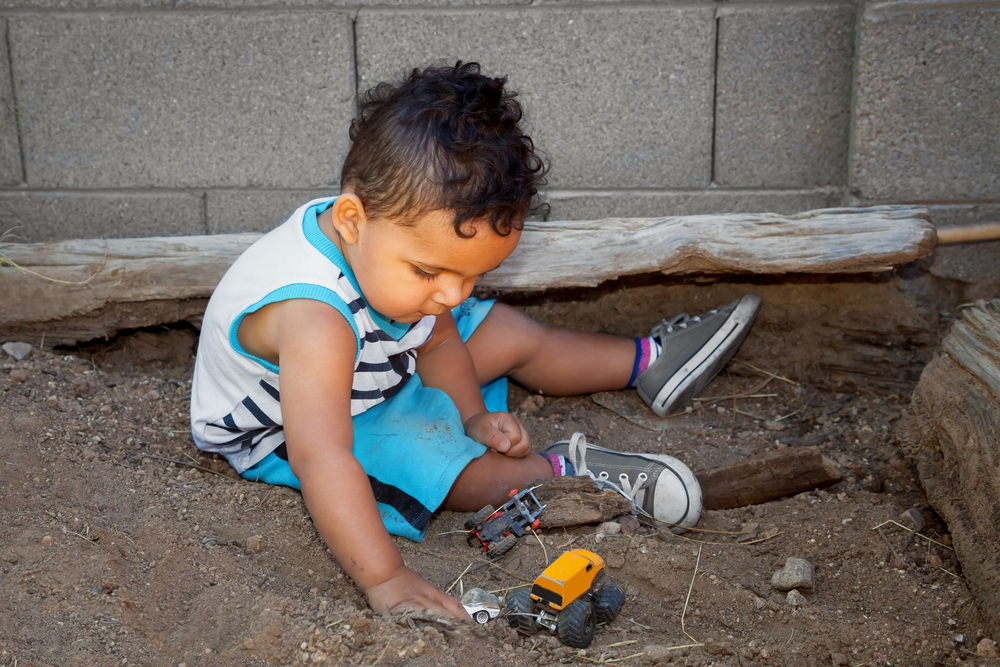Many parents are determined to keep their children’s environments clean, safe and free from harmful substances. But in doing so, they may be unintentionally increasing their child’s risk of developing allergies later in life. Mounting evidence suggests that a surprising and simple childhood habit could help build a stronger immune system and reduce the likelihood of developing allergies as an adult.
That habit? Playing outside in the dirt.
Dirt exposure strengthens immunity
Spending time in natural outdoor environments allows children to encounter a wide range of bacteria, fungi and other microorganisms. This early exposure helps train their developing immune systems to recognize which microbes are harmless and which are not. Instead of overreacting to innocuous substances like pollen, pet dander or dust, the immune system learns balance.
This idea is part of the “hygiene hypothesis,” a theory suggesting that an overly sanitized childhood environment may contribute to the rise in allergic conditions. Children who grow up around pets, farm animals or even in homes with slightly more dust may develop fewer allergies and autoimmune conditions. Their immune systems, having experienced more microbial challenges, tend to be more resilient.
Letting kids play in the yard, roll in the grass or dig in the garden might seem minor—but it’s a powerful way to promote lifelong health.
Scientific evidence supports nature play
Scientific studies across the globe have consistently shown that children who spend more time outdoors, especially in rural or farm environments, are less likely to develop allergic reactions. A Finnish study found that children exposed to biodiversity—plants, animals and microbes—had significantly fewer markers for immune system-related conditions.
Another study from Johns Hopkins University revealed that children raised in homes with pets or in farm settings had lower rates of asthma and eczema. Researchers believe this is because of early exposure to endotoxins—molecules from bacteria that stimulate the immune system in healthy ways.
This doesn’t mean children should be intentionally exposed to harmful germs. But moderate exposure to the natural world helps develop a robust immune response without overwhelming the body.
Modern cleanliness concerns
Today’s lifestyles are increasingly indoor-focused. Children are more likely to spend time in front of screens than climbing trees or building forts in the backyard. On top of that, parents are more inclined to use antibacterial wipes, sanitizers and chemical cleaners.
While good hygiene is essential for preventing infections, excessive use of disinfectants can limit beneficial microbial exposures. Over time, this could leave the immune system underdeveloped and more likely to misfire against harmless substances.
Studies show that children who grow up in extremely clean, urban environments are more likely to develop food allergies, asthma, hay fever and even autoimmune disorders. The overuse of sanitizing products may be shifting the balance too far, especially when the immune system is still learning how to respond.
Practical ways to encourage healthy exposure
Parents don’t need to throw away their cleaning supplies, but they can make intentional choices to help their child’s immune system thrive:
- Encourage outdoor play daily. Parks, backyards and natural trails provide ample microbial exposure in a safe setting
- Get involved with gardening. Let kids help dig, plant and harvest. Soil-based microbes are highly beneficial
- Limit the use of harsh chemical cleaners. Regular soap and water are enough in most situations
- Allow interaction with pets. Dogs and cats can help introduce helpful microbes into the home
- Join community nature activities. Camps, hikes and nature-based education offer more opportunities for outdoor engagement
By embracing these habits, families create environments that help children’s immune systems mature in ways that lower their long-term risk for allergies.
Building lifelong resilience
The body’s ability to fight off allergens doesn’t develop overnight. It begins in childhood and continues throughout life. Allowing for safe, routine interactions with the natural world helps the immune system “practice” its defenses. Children raised in such environments are not only less prone to allergies but may also have lower risks of developing other chronic conditions linked to immune function.
This early training has emotional benefits too. Outdoor play reduces stress, improves mood and supports mental wellness—factors that can influence physical health.
Families looking for a simple way to set their children up for better health outcomes might start with something as basic as spending time barefoot in the grass. It’s cost-free, low-risk and deeply enriching.
Balancing cleanliness and exposure
Modern parenting often comes with the pressure to maintain pristine homes and germ-free spaces. But part of preparing a child for the real world means allowing them to experience it fully. That includes the mess, the mud and the microbes.
Shifting the perspective from fear of germs to respect for microbial diversity helps reframe how families approach health. It’s not about neglecting hygiene—it’s about striking a balance that supports immune development.
More pediatricians are beginning to encourage this philosophy, noting that some exposure to the natural environment is not just safe but beneficial. Public health experts also recommend policy changes that give children more access to green spaces, outdoor play and unstructured exploration.
A powerful preventive habit
It turns out the childhood habit of playing in dirt, often dismissed as messy or risky, holds untapped power. When children dig, explore and touch the earth, they’re doing more than just having fun. They’re building a biological defense system that could protect them for decades.
Parents and guardians who want to support long-term health might consider making dirt a part of the weekly routine—not just cleaning it off, but embracing it as part of childhood’s healthiest traditions.
This isn’t just about nostalgia for simpler times. It’s about protecting children from the allergy epidemic that continues to rise each year. Science is catching up to what nature always knew: resilience begins with connection—to the ground beneath our feet.

















